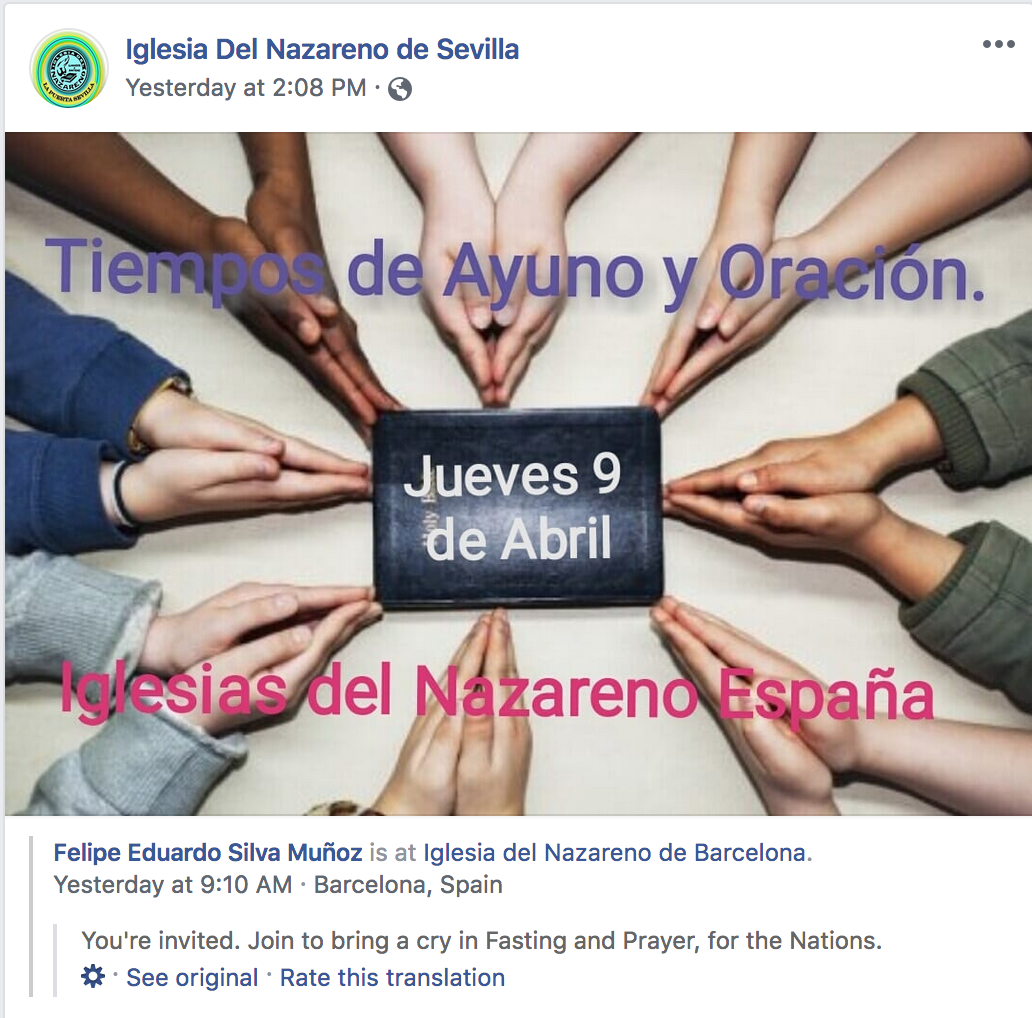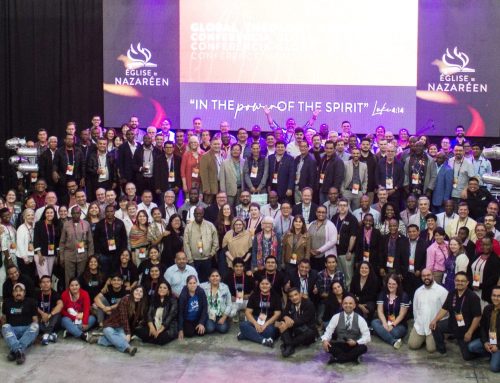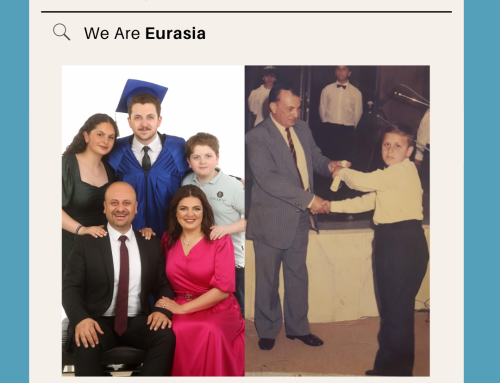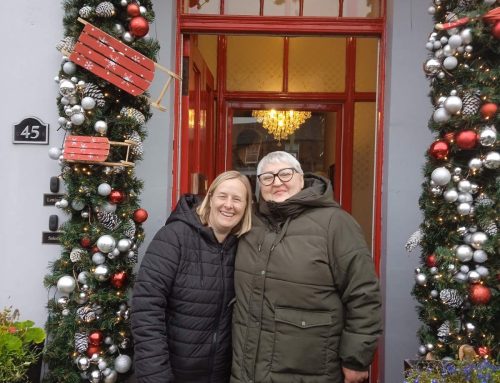Social media has proven to be the most effective method to keep Nazarene churches across the Western Mediterranean Field connected and united in prayer during national quarantines instituted in response to the global pandemic.
To keep the church connected in Spain, the phone application WhatsApp, which allows free international texting, video and phone calls, became the main platform to share updates with congregation members.
“We have phone calls with each other to encourage each other,” says Danilo Aguilar, Madrid’s Pelicano church pastor.
Pastoral visits are being made through video calls. Churches are creating prayer networks through social media.
“We send out prayer requests and praises for the church family to participate in,” says Aguilar, who is also the Eurasia Region’s coordinator of Nazarene Missions International ministry.
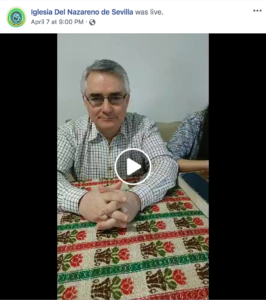
“The local churches have responded to needs through mutual support. Giving amongst members is privately done. Local churches use their resources to financially assist those in need. Essentially the family of Christ is bonding here in Spain.”
The Nazarene church in Seville is broadcasting weekday Bible studies and prayer through Facebook Live.
In Portugal, even before the government’s mandatory quarantine was announced, evangelical churches made the decision to move physical gatherings online to avoid contributing to the virus’s spread.
Social networks like Facebook, Instagram, WhatsApp, and Zoom, a videoconference service, became the main points of contact for the church members. Sunday services have been done through Live broadcasts on YouTube, Facebook or Instagram so that every member can still participate in worship services.
In France, all social gatherings were banned on March 14, and people were ordered to stay home starting on March 17. Since then, the church has worked to keep all leaders informed about the instructions given by health authorities to follow hygiene guidelines, and follow-up e-mails have been sent.
“As all gatherings were prohibited, the churches themselves had to find the means to remain united and support each other in this ordeal. Several initiatives were thus put in place to alleviate the ban on gathering. Churches have found ways to stay connected via email, WhatsApp, Facebook and YouTube,” says Joseph Toguyera, superintendent of the France District.
National confinements may last at least one more month, so digital communication is key to help the community remain encouraged and connected while safe at home, and so leaders can swiftly respond to any problems that people may experience.
“This new situation is upsetting the life of the community,” Toguyera said. “We keep all our trust in God, and we call for the continued respect of the instructions from authorities.”
Although the number of positive coronavirus cases in these countries have been high, God’s hand has been with the church members.
“Miraculously, in spite of the pandemic in Italy, no Nazarenes are reported to be infected,” says Bruce McKellips, leader of the Church of the Nazarene in the Western Mediterranean Field. “In Portugal and France, we also have no reports of Nazarenes infected by the pandemic. But in Spain we do have some cases confirmed and we ask the Church to pray for them.”
The situation in the West Mediterranean Field is slowly getting under control. Governments in Italy and Portugal are hoping that in May life can gradually return to normal, one step at a time, but they keep asking the populations to be cautious and follow practices to protect their families and society’s most vulnerable to the illness.
